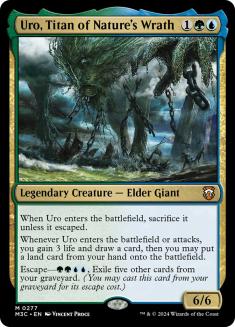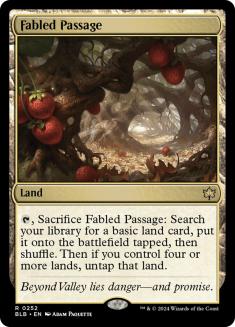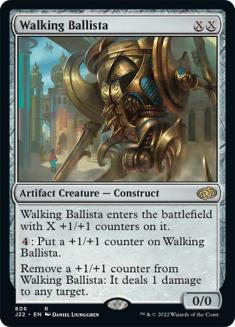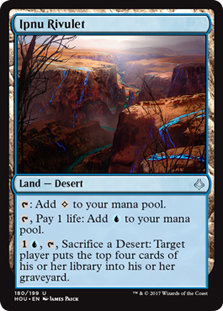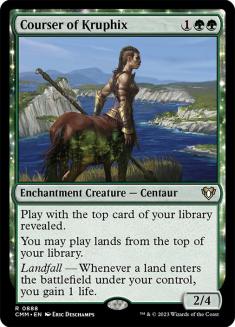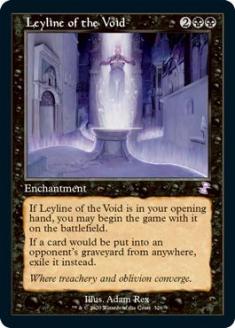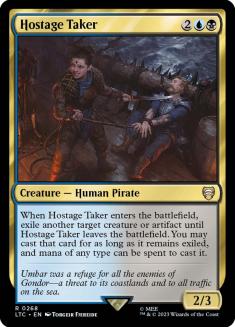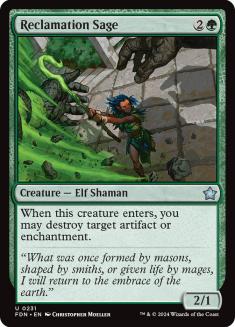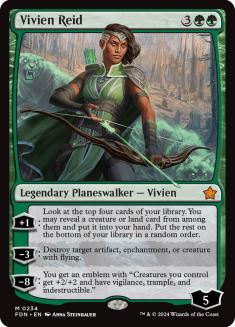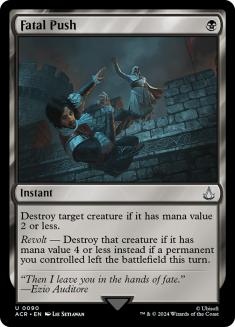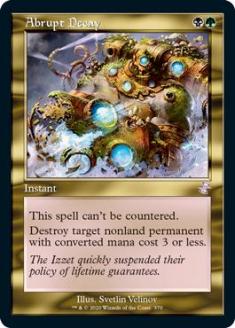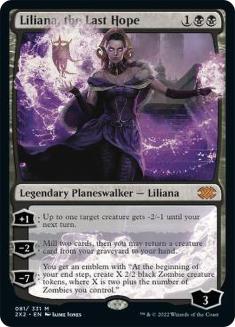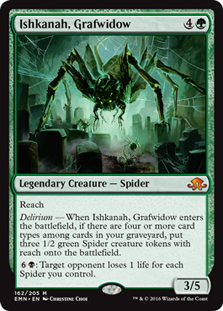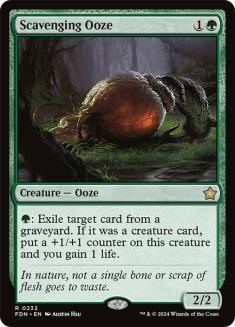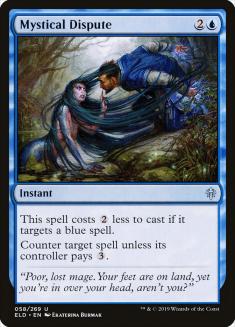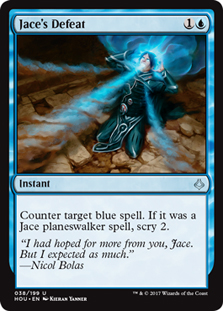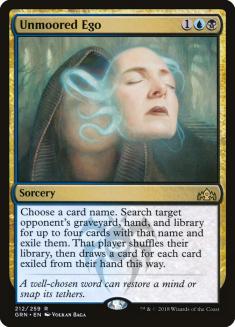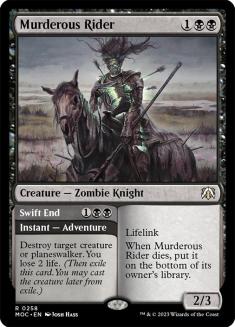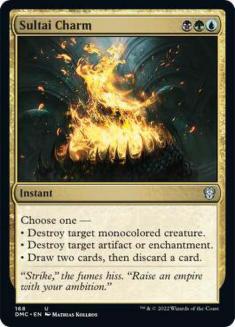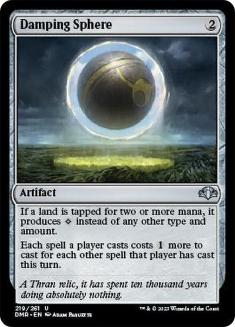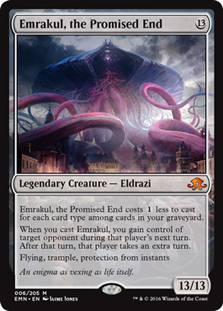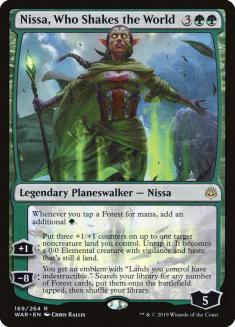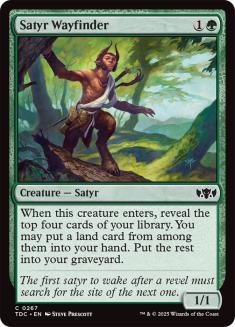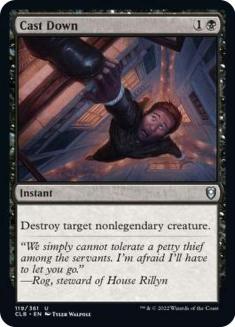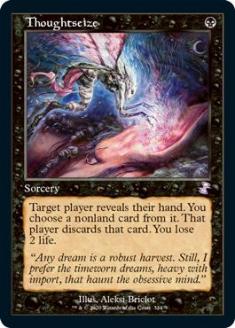This past weekend was the very first North American Regional Players Tour (RPT) event held in Phoenix. This would be my first chance to collect points in an effort to stay in the Magic Pro League (MPL) for the 2020-2021 season. Given that there are only eight events that award points for MPL members this season, and that Regional Players Tours give more points than their respective Players Tour Finals, this event was going to matter a lot for me.
The only issue was that the first two Regional Players Tour events were held the weekend before mine. This would mean that any Pioneer preparation before these two events could ultimately end up meaningless as those results could completely change the landscape of the format. Sure I could have traveled around the world to play in either Brussels or Nagoya, but I’ve never been one to travel more than I had to. I knew what had to be done, and I had a great plan.
Do nothing.
That’s right, I didn’t prepare for Pioneer at all until the results from Nagoya and Brussels started coming in. Instead, I spent two weeks solely drafting in preparation for the Limited rounds of #PTPhoenix. Eventually I had a decent grasp on Theros Beyond Death Draft, and was ready to start working on Pioneer. Well, once results started coming in, that is.
Now, I wasn’t entirely sure how this plan would pan out. On one hand I was very confident that preparing for the Constructed format prior to the other RPT results would lead to a high risk of wasting precious preparation hours, as there would be a chance that the entire metagame changed. On the other hand, what if the metagame didn’t change and I was now very far behind the rest of the field in understanding how to play all the complex matchups? What if I fell victim to the sunk cost fallacy, and felt obligated to play a now “bad” deck since I spent a lot of time working on it? There were a lot of variables to think about, but ultimately I decided it was worth the experiment since I would be in the same situation for the next RPT in Charlotte later this year.
Eventually results started coming in after Day 1 of Nagoya and Brussels, and I immediately got sucked into whatever the hell Joel Larsson was doing. I was all about that “Swedish Sultai!”
Creatures (19)
- 1 Scavenging Ooze
- 2 Courser of Kruphix
- 4 Satyr Wayfinder
- 3 Jace, Vryn's Prodigy
- 1 Tireless Tracker
- 1 Emrakul, the Promised End
- 1 Ishkanah, Grafwidow
- 1 Walking Ballista
- 1 Murderous Rider
- 4 Uro, Titan of Nature's Wrath
Planeswalkers (3)
Lands (23)
Spells (15)

Now, I’m a sucker for green Thoughtseize decks as well as Delirium strategies. I knew there was no way I was going to be able to ignore this deck, so I messaged my old teammate Joel for his exact sideboard, and I started getting matches in right away. In fact, I played so much with this deck throughout the weekend that I was able to help him strategize for some of his Top 8 matches.
I was in love. Here were some of my initial results with the deck over the course of the deck’s opening weekend.
- Mono-Black Aggro: 6-0 in matches, 12-0 in games.
- Dimir Inverter: 7-1 in matches, 15-7 in games.
- Mono-Red Aggro: 3-0 in matches, 6-0 in games.
- Azorius Control: 2-0 in matches, 4-1 in games.
- Five-Color Niv-Mizzet: 1-2 in matches, 4-5 in games.
I don’t want to waste too much time today singing the praises of this card, but it might just be the best card I’ve ever played in a midrange deck against aggressive strategies. Like, Mono-Red and Mono-Black just can’t beat the card. It gains life, adds extra lands to the battlefield, and blocks everything. Even if they can kill it, Uro will just come back the very next turn. I was blown away at how impressive this card was in this shell, and have no doubt in my mind that this style of strategy will be competitive in Pioneer for as long as Uro, Titan of Nature’s Wrath stays legal.
I kept working solely on Sultai Delirium until my testing team told me just how good the Lotus Breach deck was. I dabbled with that as well, but time was running out. I had to decide between the deck I knew, and the deck that was probably better but that I didn’t know. I played a few Leagues with Lotus Breach, and was winning with it, but always lost the games that felt close, especially the games against decks that had blue in them, which I thought most of the top decks would. I got scared, and registered Sultai Delirium.
Now I’m not going to defend my decision, as it was most likely wrong. That sucks, ya know, because week in and week out on this website I preach about how you have to be open to uncomfortable decisions like this, and yet I don’t even adhere to my own advice. Whatever, I’m not perfect, we all know that, and we just have to move on from the fact that I was a scaredy cat.
Here’s the decklist I registered for PT Phoenix.
Creatures (19)
- 1 Scavenging Ooze
- 1 Courser of Kruphix
- 4 Satyr Wayfinder
- 3 Jace, Vryn's Prodigy
- 2 Tireless Tracker
- 1 Emrakul, the Promised End
- 1 Ishkanah, Grafwidow
- 1 Walking Ballista
- 1 Murderous Rider
- 4 Uro, Titan of Nature's Wrath
Planeswalkers (3)
Lands (23)
Spells (15)

While my maindeck ended up only one card off what Joel registered himself, I did actually try a lot of different things. For a while I had 24 lands, which included an extra basic and the fourth Fabled Passage. The fetchland is particularly good in this deck as it fuels Tireless Tracker, Delirium, and Uro, Titan of Nature’s Wrath.
Some of my lists had a second Walking Ballista as I expected a lot of Bant Spirits, but it always came at the cost of the third Jace, Vryn’s Prodigy which was also good against them as well as against combo decks.
I even tried out the Ipnu Rivulet that Jacob Wilson ended up registering, but ultimately decided against it as it was mostly important in Game 1 in the matchup. Obviously this could stop them from ever “going for it” on Turns 4 and 5, but I found that they also could easily win a Game 1 by playing a super-controlling game anyway. So many things had to go right for the Game 1 win that I decided against this inclusion, as I really did like having access to the second Island for Uro-important matchups.
In the end the only thing I changed was swapping the second Courser of Kruphix for a second Tireless Tracker. Well the truth is I had only been playing with one Courser of Kruphix for a while, but that’s at least what it looks like. The reason behind this “swap” was mostly due to how much I wanted Tireless Tracker in my deck after sideboard, but couldn’t find room for it there. I’m not really excited by registering “sixteen-card sideboards,” but I felt that I really needed this time around to fit in all the anti-Lotus Field cards I wanted to play.
The most frustrating decision I had to make when working on this deck for Phoenix was how many copies of Leyline of the Void to register. While the card is great in the Delirium mirrors and against decks like Izzet Phoenix, it’s not a slam-dunk sideboard card against the more popular decks that would be in attendance. Sure, it’s fine against Dimir Inverter and Lotus Breach, but it’s not going to win you the game on its own. Due to this I wanted to just register one of it so people had to “respect it,” but decided against that as I didn’t really know what else I wanted to add to the sideboard.
I know how crazy that sounds, as most midrange decks are begging for extra sideboard cards. The truth is this deck is very good at beating aggressive decks. Going into the event I had yet to lose a game to Mono-Red or Mono-Black Aggro, and that counted all my builds that completely ignored the matchup. I mean, even this list didn’t account for these matchups at all. The aggro hate I had in my sideboard was so I had enough cards to bring in against more difficult aggressive matchups like Bant Spirits and Izzet Ensoul.
The matchup I wanted to “hammer” was Dimir Inverter, but I ran out of time trying to figure out exactly what that was. The reason for it being so difficult to figure out is that Combo-Control always has an advantage against pure Midrange. There’s not really any cards I can add to my sideboard that will have the same effect in this matchup that a card like Damping Sphere will have against Lotus Breach. Dimir Inverter is a Thoughtseize / Dig Through Time strategy that has alternate win conditions outside of milling itself out. One card just won’t swing the matchup that much, so I decided to just lean on skill in that matchup and hammer the combo matchup I expected to face more often.
Initially I wasn’t a big fan of these three cards, but the two I ended up registering grew on me over time. I felt that the deck needed a card like Hostage Taker or Reclamation Sage to be able to tutor for against Mono-White Devotion and Izzet Ensoul, but not both. I ended up liking Hostage Taker more as it was actually pretty decent against other midrange decks like Dimir Inverter when they had all those threats after sideboard.
Vivien Reid was the perfect “big effect” to bring in against decks that had Rest in Peace or Leyline of the Void. This is also the reason why I registered the Sultai Charm, but it’s never been a great card to cast.
The Event
I ended up going 6-3-1 in the Pioneer portion of the event, and would have won the match that I drew in. Time was called after I dealt with a Pack Rat army thanks to stealing the original with Hostage Taker and creating my own Rat pack. It’s sad, because that was during Round 15 of the event, and a win there would have secured four more points for me. I really hope I don’t miss next season’s MPL by that amount of points!
Here’s a breakdown of my results during the event.
- Lotus Breach: 2-2
- Dimir Inverter: 1-0-1
- Jund Delirium: 1-0
- Mono-Red Aggro: 1-0
- Mono-Black Aggro: 1-0
- Orzhov Midrange: 0-1
In the end I didn’t have a bad event with Sultai Delirium, but I regret not playing Lotus Breach. I guess I still could have still lost the matches I did very easily with either deck, but that’s just how I feel. That doesn’t take away from Sultai Delirium, however, which I think is a fantastic deck for anyone who likes midrange strategies like this. Honestly, if I could do it all over again I’d probably still register this deck. It’s just who I am.
Sideboard Guide
Keep in mind that some subtle shifts did take place in the event itself given that we played with open decklists, but these were my base sideboarding plans going into the event itself. If the numbers don’t match exactly, that’s not a mistake. It’s how I designed the guide, knowing that I’d keep in or take out a couple of cards based on what I knew or thought was in their specific list.
VS Dimir Inverter
Out:
In:
Unmoored Ego Targets:
It’s usually just Inverter of Truth, but sometimes you can use this as a way to keep them off of a specific gameplan. For example, I’ve named Dig Through Time when they were behind in card advantage, and even Fatal Push when I really needed my Uro to kill their Jaces.
VS Lotus Breach
Out:
In:
Unmoored Ego Targets:
You’ll mostly be naming Fae of Wishes with this card as Ugin, the Spirit Dragon can singlehandedly beat you, but that doesn’t always have to be the case. It all depends how active their graveyard is. If you don’t have a Leyline of the Void on the battlefield but have Nissa going, you may just want to name Hidden Strings. Now, there’s no way for you to deterministically keep them from going off with just one or two hate pieces, which is why attacking their ability to make extra mana just might be the best way to keep them from doing serious damage in a single turn.
It’s very important to remember that you can’t look at your opponent’s sideboard for any reason. This even includes when you’re casting Granted! This can make your Emrakul turns difficult against Lotus Breach, so the best gameplan you can have is trying to end their turn with no Lotus Fields on the battlefield. This can be done by sacrificing true Lotus Fields with the enters-the-battlefield trigger of another Lotus Field. Plan accordingly to have enough mana left over to turn any Thespian’s Stage into some off-color land you control.
VS Bant Spirits
Out:
In:
Sometimes I’ll sideboard in the Hostage Taker on the play over a copy of Uro, but I’m still not sure if that’s correct. It is fun, though!
VS Azorius Control
Out:
In:
VS Mono-Black Aggro
Out:
In:
VS Mono-Red Aggro
Out:
In:
VS Five-Color Niv-Mizzet
Out:
In:
VS Izzet Ensoul
Out:
In:



